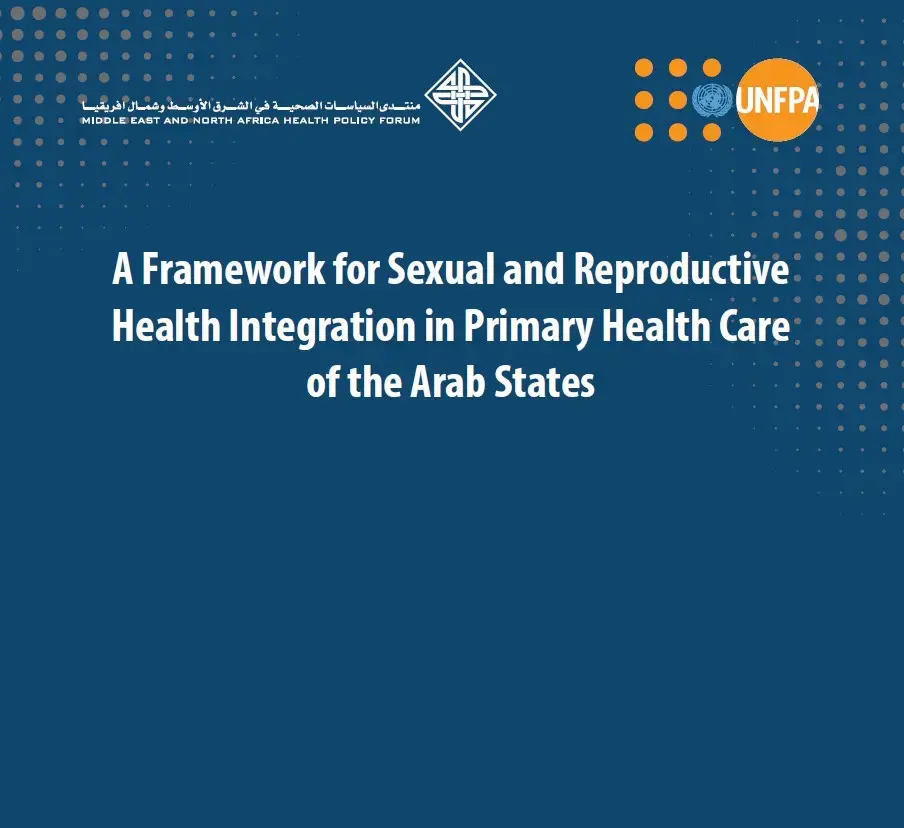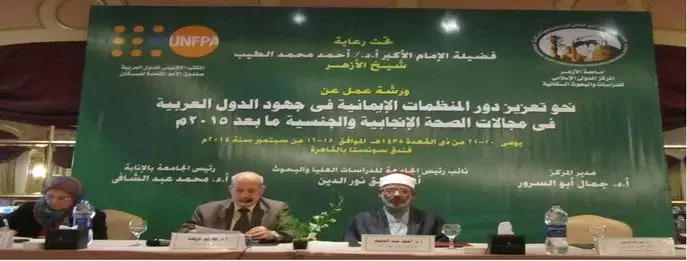In 2015, member states of the United Nations committed to “leaving no-one behind”. Such commitment has consequences and costs that are not necessarily available in developing countries. Separately, and for decades, Sexual and Reproductive Health (SRH) services in the Arab region have been provided in silos, with high fragmentation and cost to the different health systems and individuals. It is, therefore, necessary to identify ways to improve the efficiency and quality of healthcare provision and freeing resources to help leave no-one behind.
In 2017 and 2018, UNFPA Arab States Regional Office (ASRO) in partnership with the Middle East North Africa Health Policy Forum (MENA-HPF) launched a regional assessment of the integration of SRH services into Primary Health Care in eleven Arab countries. The exercise did not stop at the assessment stage but further built on the findings from the eleven countries to propose an integration framework that provides a sort of a road map and guidance to advancing national level integration efforts to improve efficiency and quality of healthcare provision to the most needy, minimizing costs to the health system as well as the individual.




